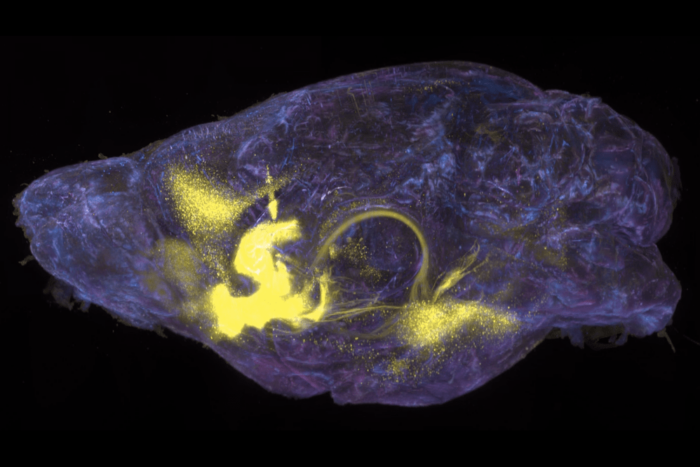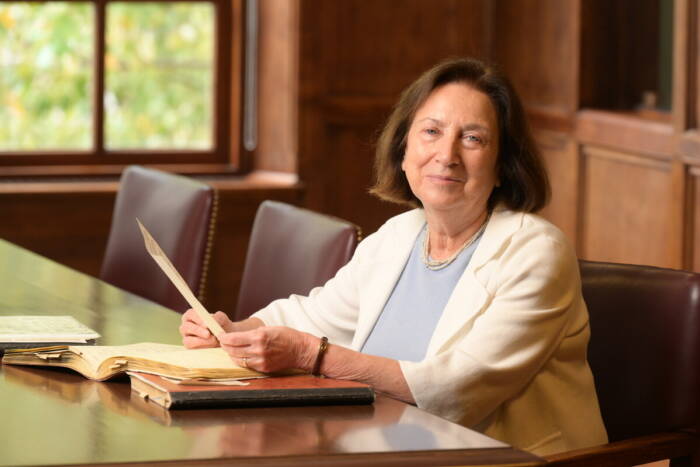Mike Young to receive Shaw Prize
Michael W. Young, Richard and Jeanne Fisher Professor and head of the Laboratory of Genetics, will receive the 2013 Shaw Prize in Life Science and Medicine in recognition of his work on the molecular biology of circadian rhythms. The prize was announced this week at a press conference in Hong Kong.
Established in November 2002, the Shaw Prize honors individuals who have achieved significant breakthroughs in academic and scientific research or applications, and whose work has resulted in a positive and profound impact on humanity. Young shares the honor with two scientists from Brandeis University, Michael Rosbash and Jeffrey C. Hall, who also study circadian rhythms. The three scientists will share the $1 million honorarium.
 The Shaw Prize is the latest in a string of prestigious prizes for Young and his colleagues. In the past two years, the trio has received the Wiley Prize in Biomedical Sciences, the Massry Prize, the Canada Gairdner International Award (Rockefeller’s Jeffrey V. Ravetch was also a recipient) and the Louisa Gross Horwitz Prize from Columbia University.
The Shaw Prize is the latest in a string of prestigious prizes for Young and his colleagues. In the past two years, the trio has received the Wiley Prize in Biomedical Sciences, the Massry Prize, the Canada Gairdner International Award (Rockefeller’s Jeffrey V. Ravetch was also a recipient) and the Louisa Gross Horwitz Prize from Columbia University.
“It is exceptionally gratifying to see Mike’s research receive this latest recognition” says Marc Tessier-Lavigne, Rockefeller’s president. “The discoveries he and his colleagues have made about circadian rhythms have contributed greatly to our understanding of how the human body works, and is an example of how basic research in science can be translated to new insights in physiology and human health.”
Young’s work spans nearly three decades of research on the biological clocks that regulate our bodies’ patterns of sleep and wakefulness, metabolism and response to disease. By studying Drosophila melanogaster, commonly known as the fruit fly, Young’s lab discovered the majority of the genes that regulate the fly’s circadian clock. Young’s findings have the potential to help individuals suffering from sleep and mood disorders as well as dysfunctions related to the timing of gene activities in visual function, locomotion, metabolism, learning and memory. Recent research in the Young laboratory has looked at circadian rhythms at the genetic and molecular levels in humans with certain sleep and depressive disorders.
Young received his undergraduate degree in biology in 1971 and his Ph.D. in genetics in 1975, both from The University of Texas, Austin. Following postdoctoral work in biochemistry at the Stanford University School of Medicine, he was appointed assistant professor at Rockefeller in 1978 as part of The Rockefeller University Fellows Program and was named associate professor in 1984 and professor in 1988. He was named the university’s vice president for academic affairs and Richard and Jeanne Fisher Professor in 2004. He is a member of the National Academy of Sciences and a fellow of the American Academy of Microbiology.
The Shaw Prize, known as the Nobel Prize of the East, was established by Run Run Shaw, a Chinese movie executive and philanthropist, in November 2002. The prize is an international award that honors individuals who are currently active in their respective fields and who have achieved distinguished and significant advances, who have made outstanding contributions in culture and the arts or who in other domains have achieved excellence.
Rockefeller’s Jeffrey M. Friedman received the Shaw Prize in 2009.


